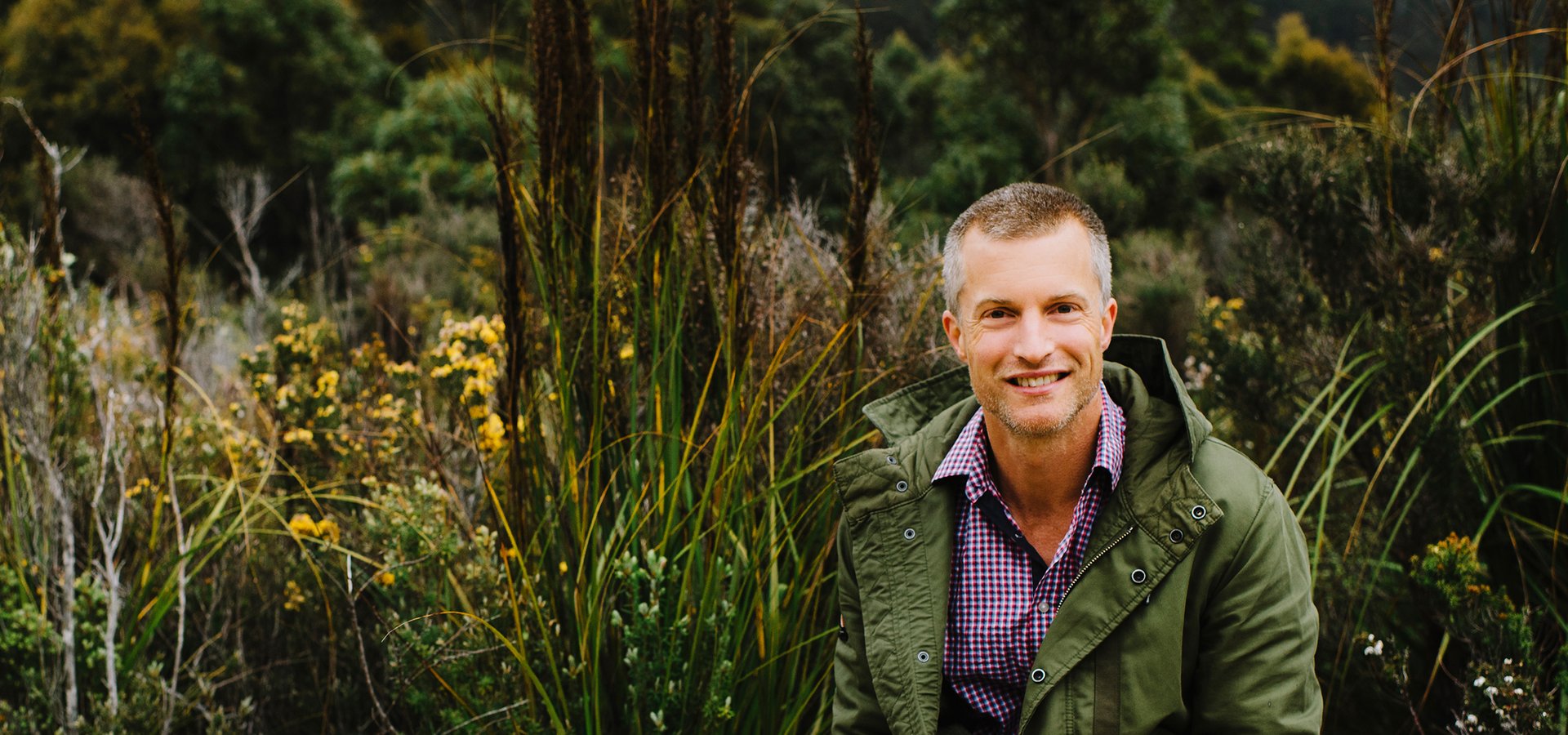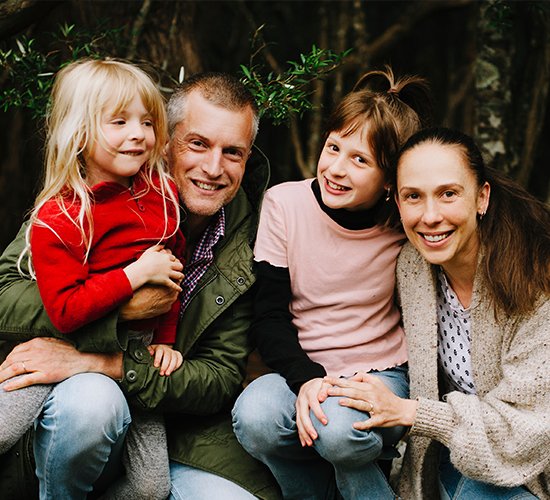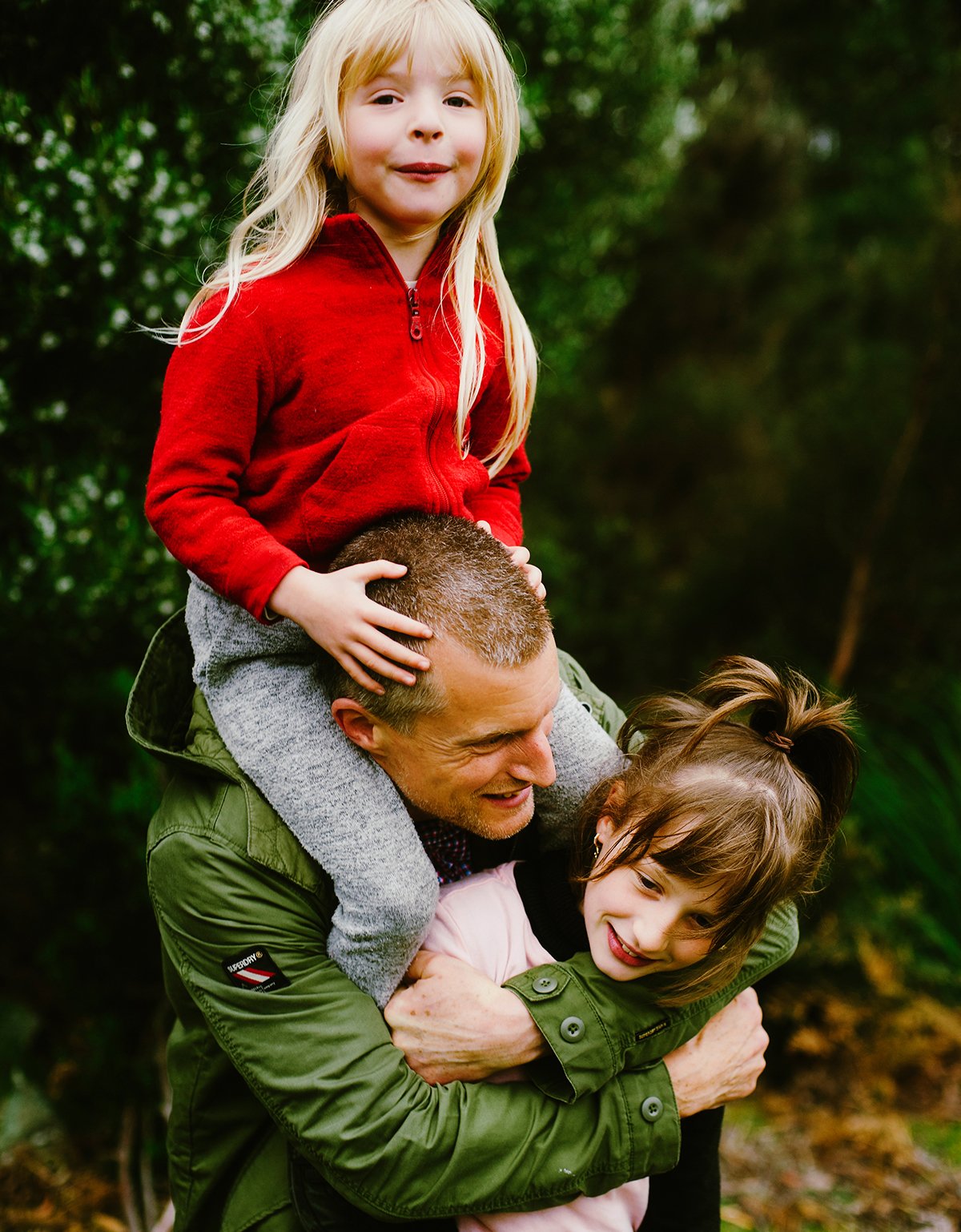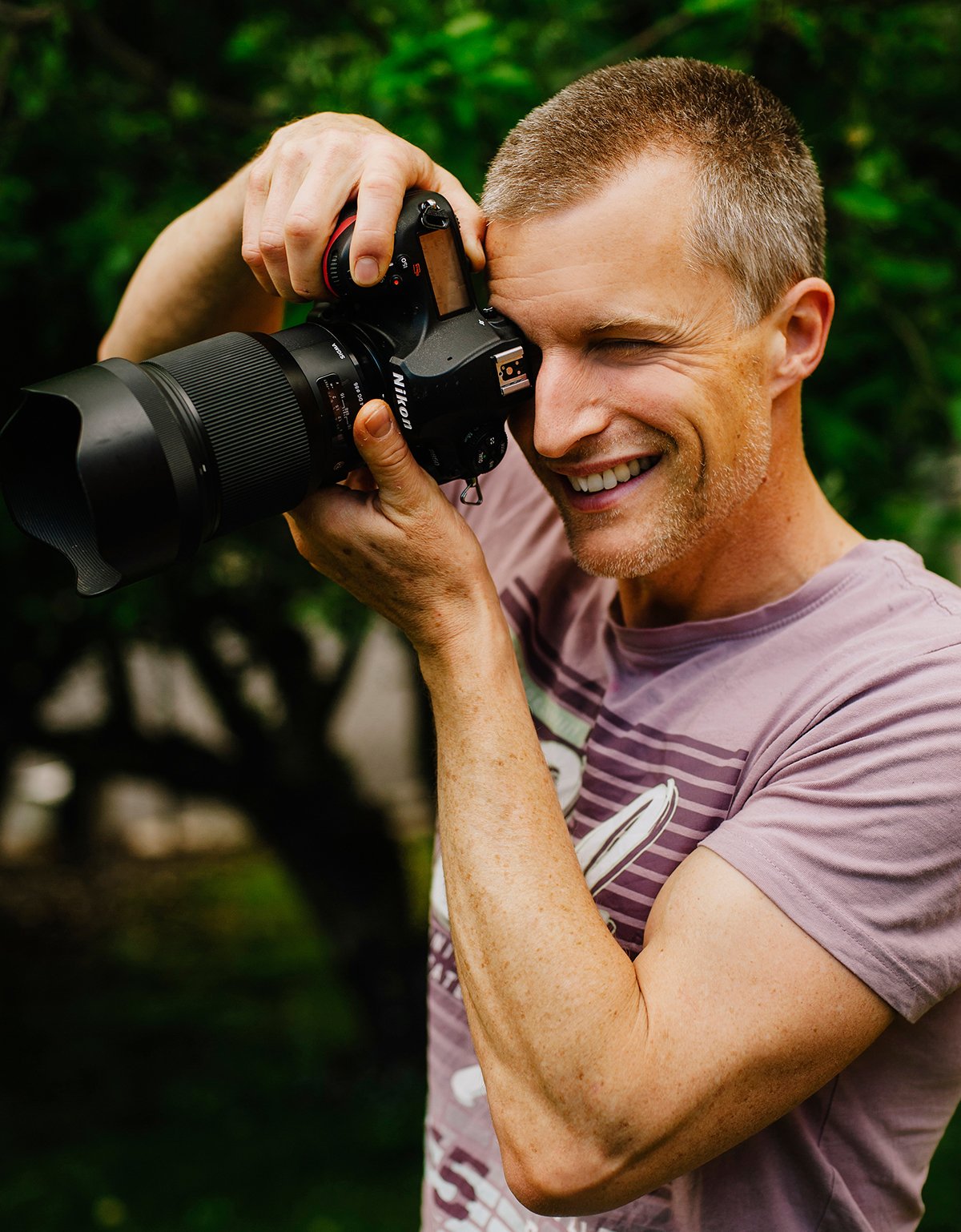Moss Halliday-Hall
"It is such a wonderful privilege to be invited in, for them to reveal their life and let me document it. I think those ordinary moments are so evocative and say so much about what it is living here."

"My childhood was a bit outside the norm, so I didn’t understand how to interact with the ‘regular’ world: life skills, how to cope, how to make progress. It was overwhelming."

Moss Halliday-Hall begins a photoshoot with a warm and friendly chat about what to expect. Then, he unpacks his cameras and gets to work.
After about half an hour, he is no longer there. Moss has become part of the scenery. At least, that’s how it seems to the people on the other side of the lens. Instead of feeling like they need to perform their most important life events for the camera, they have gone back to living them. They are saying their wedding vows as if no one existed but their partner. They are holding their baby, whose eyes stare with wonder at the faces of their first-ever caregivers. They are playing violin solos, chatting with customers, and celebrating their cultures’ most festive holidays.
For a long time, Moss tried to do “the marketable stuff.” It was a constant struggle. “I only really care about what people think, what they do. I don’t want people to have to make anything up, for it to be a performance. I want to let the beauty of someone’s actual life show. I thought, ‘That is what I want to do.’” Moss hoped he could reach people who shared his drive for authenticity, to show the wonder in the everyday. “It can be difficult for people – always, but even more so these days – to accept they don’t need to be anybody else. That they are genuinely beautiful as they are.”

Moss did find those people – in Tasmania. His partner, Nicole, grew up in Hobart, and they often travelled here on holiday. Nicole left for New South Wales when she finished school. But when she and Moss had their first child, their perspective on living here changed. “It’s an amazing place to have a family,” Moss reflects. “Because of the access to all the good things you need in a city, even if not all the great, spectacular things you have in a big city. It’s the stuff you really, actually need: beautiful natural environments.” For Moss, who grew up in country New South Wales, his experience of Tasmania reminds him of some of his best childhood moments. The smaller scale, slower pace of life, and connections between people have made him feel right at home. “People talk to you at the cash register. Walk down the street, people look you in the eye and smile. It’s not just particles bouncing past each other in this stream of the big city. Rather than fanging around, trying to make it to the next spot, to the next buck, it allows that connection.”
The search for authenticity and deep, human connection has been with Moss since as long as he can remember. And he remembers a lot. “It was just me and my mum and grandmother for the first three years of my life,” he says. “It sits in my memory as this beautiful, peaceful, golden time.” But once Moss turned four, he began yearning to have a father in his life. Even though his family wasn’t religious, he began praying every night before he went to bed. “I would pray at my bed for a father to come to me,” he recalls. And then his mum married, and the father he dreamed of came into his life. They moved from Northern Sydney to Bellingen, on the mid-north coast, and from there to an even smaller country town. They lived among beautiful rolling hills, with dairy farms, potato fields, and a fascinating mixture of folks “from loggers to Greenies.”
Moss was 12 years old when his parents separated, and he and his mum moved to Armidale in the New England area of NSW. It was there, in high school, that Moss started to question life more deeply. He wondered at the real purpose of school. “I could remember everything; that’s how you got the marks. But there was no learning. It seemed so empty, and I was really disillusioned.” The experience fuelled an anxiety that would stay with Moss for years. He ended up not finishing high school, taking odd jobs in gardening and hospitality.


A love of writing, acting, and film took Moss to Sydney. He tried drama school, ultimately pursuing a Communications degree at the University of Technology Sydney. The whole time, he felt like something was missing, like there was something he wasn’t getting about how the world works. “My childhood was a bit outside the norm, so I didn’t understand how to interact with the ‘regular’ world: life skills, how to cope, how to make progress. I got a degree, but now what was I supposed to do? It was overwhelming.” He turned 30, wondering what had happened, wondering why he didn’t feel even on a path to what he’d dreamed of doing. He sought help for the first time, which transformed his outlook and ability to cope.
Moss’ first foray into photography began with French provincial farmhouse tables. “In the process of studying film, I started wanting to understand how image works in film – to refine the way I was seeing things. So, I started taking photos.” His first paid gig was taking product photos for the furniture business he and Nicole were working for. Then came wedding photography for one of the people who worked there. It dawned on him that this might be the life he had been seeking. It was only once they moved to Tasmania that he was able to explore that potential.
“I went through the process of trying to be what I thought a wedding photographer is supposed to be,” Moss recalls. “And finding I couldn’t be that. I ultimately arrived at where I am now: largely an expressive, documentary-style photographer, with a few poses thrown in. For me, it’s finding the beauty in a moment. I spend my time watching, observing.” It was because he was here with his family that Moss was able to discover that side of himself. “There’s space for people to try things, because there is a ground level of community support for small endeavours. Those small things can then become bigger things. Tasmania is innovative in a lot of ways, with a closeness you don’t get on the mainland. There’s a real thing here that life is not just work. It’s about exploring your world, going out further than just your work, and inviting yourself into the greater Tasmania.”

It is such a wonderful privilege to be invited in, for them to reveal their life and let me document it. I think those ordinary moments are so evocative and say so much about what it is living here.
Moss loves being a parent to their two children. Every conversation about them brings feelings of warmth, dedication, and tenderness. “I’ve had the chance to uncover a lot more about being myself in being a parent,” Moss reflects. Life with young kids can be busy and sometimes stressful, and it can be hard to find time as a couple. “It can be hard getting space from the demands of everyday life,” he says. “But because of that nurturing, open feeling I get from being here, that difficulty in finding space hasn’t been as challenging.”
For Moss, that sense of space and gratitude has become a feature of his work. Every time he works with a client, he is in awe of the honour of simply being there. “I was doing photography with a family who had a baby a few months old. Being there, it was like, ‘This is our life; come in.’ To have a mum feed her child, with me there, it’s just like, ‘Thank you. Thank you for letting me in.’ It is such a wonderful privilege to be invited in, for them to reveal their life and let me document it. I think those ordinary moments are so evocative and say so much about what it is living here."
We worked with southern Tasmanian photographer Lisa Kuilenburg for this Tasmanian story.